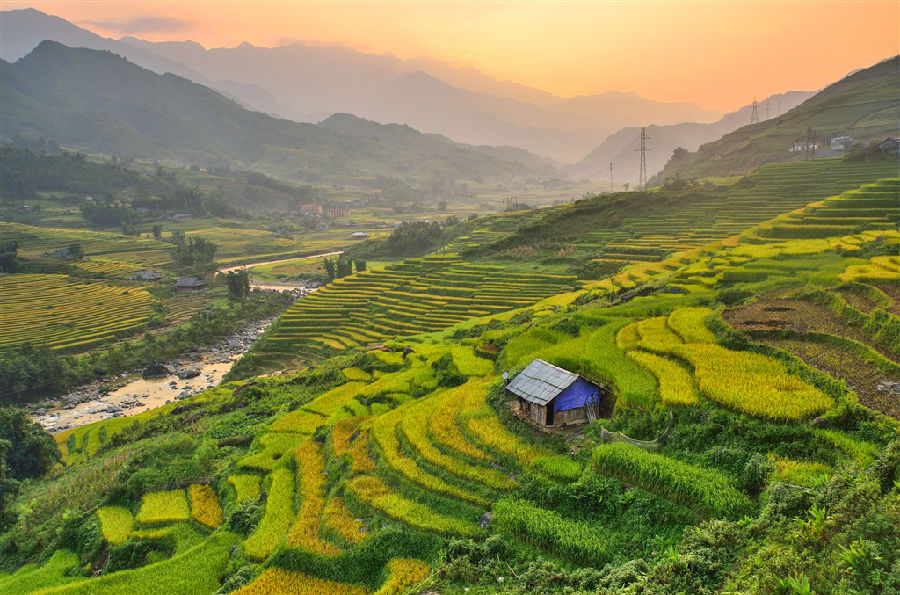My aunt could not have been pregnant.
我的小姨本不该怀孕。
Her husband had been gone for years.
她的丈夫已经去世多年。
No one said anything. We did not discuss it.
没人说过什么,我们从不讨论这个。
In early summer she was ready to have the child,
早夏时节,她快要生产了,
long after the time when it could have been possible.
在这件事要发生的很久之后。
The village had also been counting.
村子里都在数着日子。
On the night the baby was to be born the villagers raided our house.
晚上孩子快要出生了,村里人突然闯入我们的家。
Some were crying. Like a great saw, teeth strung with lights,
一些人在哭,就像链锯一般,牙齿嘶磨着,
files of people walked zigzag across our land, tearing the rice.
成群的人围着我们的田地撕扯着水稻。
Their lanterns doubled in the disturbed black water,
他们的灯笼在惊起涟漪的黑色水面上,

which drained away through the broken bunds.
倒影重叠,水流经过裂口的堤坝慢慢流尽。
As the villagers closed in,
随着村人越走越近,
we could see that some of them, probably men and women we knew well, wore white masks.
我们能看见其中一些人,可能是认识的男人女人们,带着白色的面具。
The people with long hair hung it over their faces.
长发的人们把头发扎过头顶。
Women with short hair made it stand up on end.
短发的女人把头发挽到一边。
Some had tied white bands around their foreheads, arms, and legs.
一些人前额,胳膊和腿上还绑了白色的布带。
At first they threw mud and rocks at the house.
起初他们向房子里扔泥土石块。
Then they threw eggs and began slaughtering our stock.
接着扔鸡蛋,并开始屠杀我们的家畜。
We could hear the animals scream their deaths—the roosters, the pigs, a last great roar from the ox.
能听见动物们发出死前最后的哀嚎,公鸡,猪最后是牛的一声咆哮。












